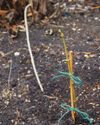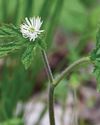
HAVE YOU EVER SHARED your love of gardens and gardening with children, your own or someone else's? It can be as simple as showing a three-year-old how to make a snapdragon flower open and close its "mouth" or as involved as working with a thirdgrade class to plant a three-sisters garden (corn, pumpkins and beans, organized as Native Americans traditionally did, with beans vining up cornstalks and pumpkins spreading below to shade the soil).
Whatever the gardening wonders or techniques being shared, the impulse is often the same: the belief that children benefit from direct learning in the natural world. A garden offers a great place to do that.
While that belief has inspired much informal sharing about plants, it also undergirds a long tradition in the field of formal education. One such initiative, which enjoyed unusual longevity and reach, was the Nature Study Movement. Active in the United States from about 1890 to 1930, Nature Study proponents emphasized outdoor experiences and direct observations of plants, animals and natural phenomena, such as cloud forms and weather patterns.
NATURE STUDY: WHY AND HOW
Nature Study was designed as one way to reform elementary public education in the US. Those reform efforts advanced progressive ideas, such as every child deserves an education that includes fluency with local natural history and hands-on science.
Denne historien er fra January - February 2024-utgaven av Horticulture.
Start din 7-dagers gratis prøveperiode på Magzter GOLD for å få tilgang til tusenvis av utvalgte premiumhistorier og 9000+ magasiner og aviser.
Allerede abonnent ? Logg på
Denne historien er fra January - February 2024-utgaven av Horticulture.
Start din 7-dagers gratis prøveperiode på Magzter GOLD for å få tilgang til tusenvis av utvalgte premiumhistorier og 9000+ magasiner og aviser.
Allerede abonnent? Logg på

WINTER READING
Pass the time with any of these inspiring books

TOP-PRIZE PERENNIALS
A foliage masterpiece for shade and a late bloomer for sun

MARK WESSEL
What's new for fruit and vegetable gardeners?

KINGS OF THE NORTHERN FORESTS
A look at the trees, shrubs and perennial plants that bolster life in Ecoregion 5

BLUEBERRIES & CO.
Members of the genus Vaccinium provide sweet flavor, health benefits and beauty in the garden

Take It Indoors
Cs the growing season dwindles, _ potted cittus became a summer souuenir

ROOTED IN PLACE
LAYERING IS A PROPAGATION TECHNIQUE THAT TAKES A WHILE TO COMPLETE, BUT IT DEMANDS LITTLE EFFORT FROM THE GARDENER

Weeding Out Worry - Two books give perspectives on gardening's importance to mental health
Two books give perspectives on gardening's importance to mental health. One is written by a psychiatrist and psychotherapist who draws on decades of experience as a clinician and a gardener to discuss how gardening and interaction with the natural world benefit us. The other is written by a woman with mental illness whose efforts at becoming well brought her to outdoor activities, including gardening.

A Big Role for SMALL GRASSES
The unexpected benefits of small native grasses

GOLDENSEAL
A woodland herb worth guarding